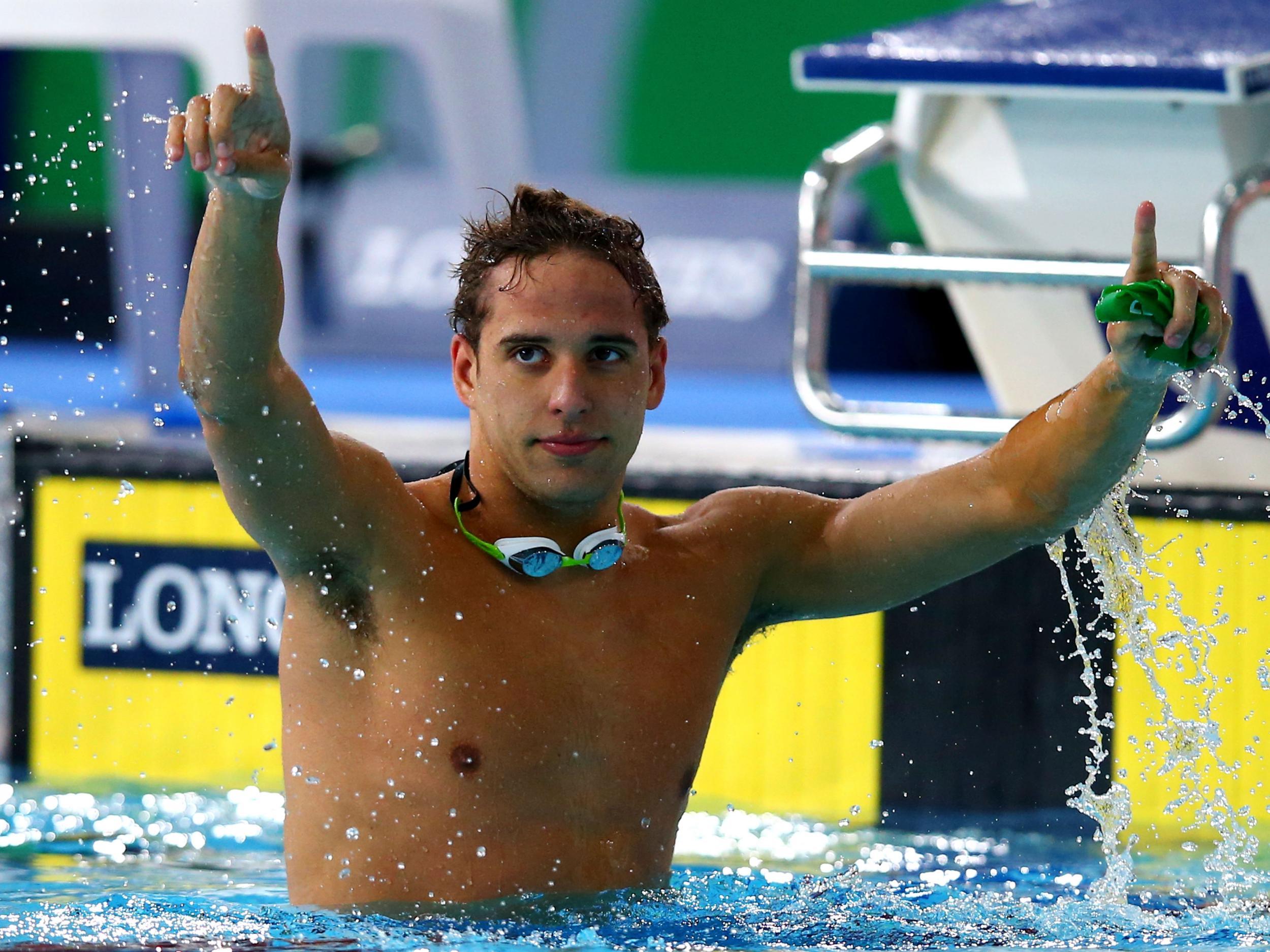Rio 2016: The swimmer, the rower and a culture clash bridged
Chad le Clos and Matthew Pinsent

They are an unlikely couple indeed, united you would think only by gold medals, a love of cutting through the water and the thrill of being Olympians.
But the Great Britain rower and the South African swimmer Chad le Clos have more in common than that now. They have become close over the last two years as the former has been making a documentary - warts and all - about the latter.
Le Clos shot to fame in London 2012 when he amazingly and thrillingly beat the American superstar Michael Phelps in the 200m butterfly final. It was Phelps’ medal. It was Phelps’ race. He had owned it for a decade – but along came this unknown 20-year-old and stole it by a fingertip. Cue pandemonium in the stands where Bert le Clos, Chad’s father, was exploding to the extent the BBC trained their cameras on him. Clare Balding interviewed him and he proved to be a volcano in human form. Suddenly he had stolen his gold medal-winning son’s thunder.
Not that Chad minded. The family are close, unusually so, as Pinsent reveals in the documentary, Unbelievable (it was the word his dad kept repeating in that Balding interview). The film shows the shocking facilities le Clos deals with in Durban as he scoops hundreds of dead flies out of the water in his open-air training pool, the fights against cancer that his mum and dad are undergoing and the battle for Chad to remain focused on Rio and retaining that gold.
“We share an agent,” Pinsent reveals of how the friendship began. “Chad was in London at the end of 2014 and I met him and Bert and we just talked about sport and the Olympics. We got to know each other. We talked about making a documentary: how was it going to work? How much time can we give to it? What will the access be like? It went from there and then obviously he and I have become friends. He’s very genuine. You can see a lot of the Olympic ethos in him.”
Pinsent spent six weeks in Durban following the le Clos clan, filming their most intimate moments – such as just minutes after Chad’s mum, Geraldine, learns that her breast cancer has returned – interviewing friends and family. The former rower is clearly a fan of Chad – but also, you get the impression, wants to give him a good shake.
“His way of life is completely different to anything I knew,” Pinsent tells me. “All that stuff about him living at home, being in Durban. He could base himself anywhere in the world. But he’s a sort of man-child. He’s totally dependent. He doesn’t want to cook, doesn’t want to do his laundry, doesn’t want to do an errand. He wants his dad to do it – like a butler service – and his dad is happy to. He loves it. He’s living over the garage. It’s like ‘oh God. Why would you be at home?’ This is just all too uncomfortable. It is strange.”
But Pinsent didn’t feel able to give le Clos direction. He’d have had to get round Bert first. But he was also filming a documentary after all. He had to bite his lip. “He’d turn to me in a really disarming way and ask my advice and so it’s then an interesting challenge if I’m there to make a film. Where do you draw the line? I’d catch myself. I couldn’t turn the camera on and ask him a question that I knew the answer to.”
If Pinsent had felt able to give le Clos advice he would have told him not to engage in the trash talking with Phelps that he has been dragged in to. It adds spice to the 200m fly in Rio which promises to be a fascinating race. Can Phelps, who came out of retirement so he could race in Brazil, possibly so he could get retrieve his medal from le Clos, reclaim his crown?
“The trash talking was a mistake,” Pinsent says. “I’m not sure that Chad started it but once it starts you are better off zipping it. It’s not boxing. Phelps has got a big following. He taps into that ‘American hero’, ‘greatest of all time’ thing. You are always on to a loser.”
And how will le Clos cope with a second Games? “We didn’t speak about it,” Pinsent says. “It’s not my role. But it’s definitely going to be different. He goes in with a lot more expectation. It’s sort of his race to lose now. Before it was a free hit at a bit of history. He doesn’t have that anymore. If he goes back with a bronze people will be like, ‘oh well’. Whereas if he’d won a bronze in London everyone would be: ‘Fantastic result’.
“It’s a very complicated environment the Olympic goldfish bowl.”
Pinsent knows it well. His new friend is about to learn what it’s like returning as a contender not an outsider. It should be fun.
'Unbelievable' is available on the OneToWatch #12W YouTube channel
Subscribe to Independent Premium to bookmark this article
Want to bookmark your favourite articles and stories to read or reference later? Start your Independent Premium subscription today.

Join our commenting forum
Join thought-provoking conversations, follow other Independent readers and see their replies